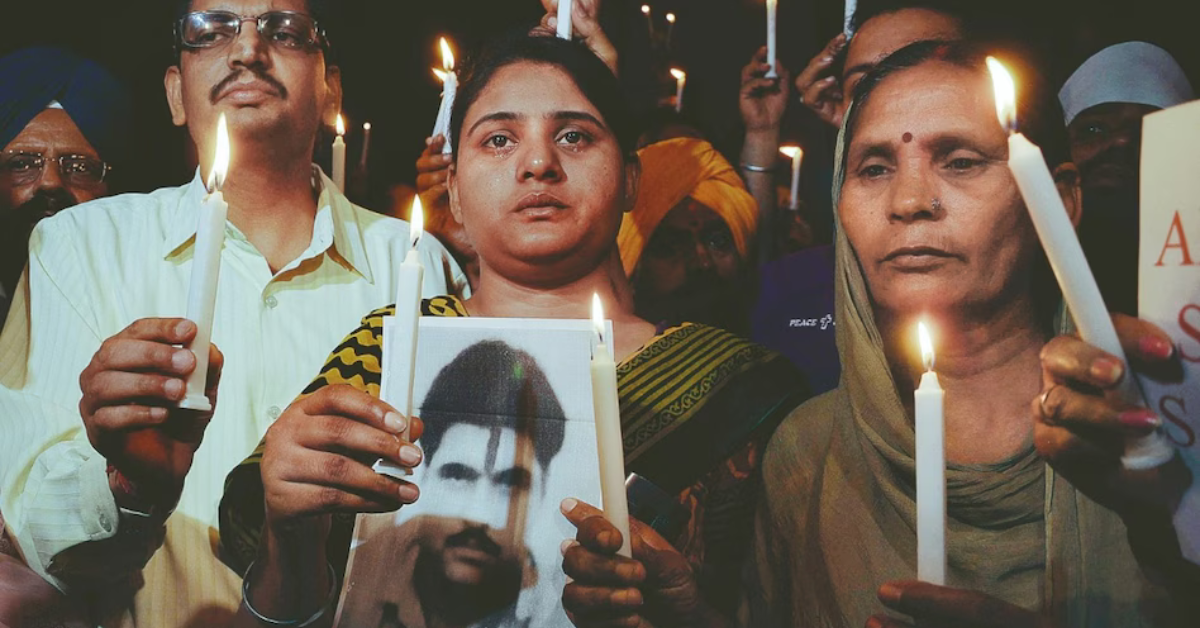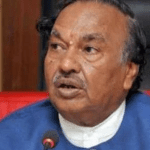Swapandeep Kaur, the daughter of Indian death row prisoner Sarabjit Singh, has spoken candidly about her complex feelings surrounding the recent killing of her father’s murderer, Amir Sarfaraz Tamba. Initially, Kaur felt satisfied upon hearing of Tamba’s death in Lahore but soon realized that this was not the justice her family was seeking. Instead, she believes a trial would have shed light on the reasons for her father’s death and the individuals behind it.
In an interview with India Today TV, Kaur expressed her concern that the Pakistani government might have orchestrated her father’s killing in 2013. She argued that the authorities feared Sarabjit Singh would reveal details of the mistreatment he endured while incarcerated in Pakistan’s Kot Lakhpat Jail, which could have shed a negative light on the Pakistani establishment.
The recent killing of Tamba, who was associated with Lashkar-e-Taiba (LeT) founder Hafiz Saeed, has raised suspicions among Kaur and her family. Kaur suspects the Pakistani government may have been involved in the targeted attack on Tamba to cover up the conspiracy surrounding her father’s death.
Sarabjit Singh’s Last Letter and Diary
Kaur shared a poignant account of her father’s final letter, in which he described the slow poisoning and inhumane treatment he endured in prison. He relayed the threats made by prison officials, who told him his bones would be sent back to India and that he would not be allowed to leave the jail alive.
Kaur noted that a diary her father kept, chronicling his experience in the Pakistani jail, was never sent back to the family along with his body. This lack of information has left her and her family with many unanswered questions.
Tamba’s Killing and Acquittal
Amir Sarfaraz Tamba was killed in Lahore by unknown gunmen in what appears to have been a targeted attack. He was shot multiple times in the chest and legs near his residence, suggesting a planned and deliberate assault.
In December 2018, a Pakistani court acquitted Tamba and Mudassar, the two prime suspects in the Sarabjit Singh murder case, due to a lack of evidence. Witnesses in the trial turned hostile, leading to their acquittal.
Sarabjit Singh’s Harrowing Ordeal
Sarabjit Singh faced a grim fate in Pakistan, where he was accused of spying and involvement in bomb attacks in Lahore and Faisalabad in 1990. These attacks resulted in 14 deaths, and Singh was sentenced to death. However, his family in India has always maintained that he crossed the border inadvertently while farming.
Singh spent 23 years in the Kot Lakhpat Jail before he was attacked and killed by a group of Pakistani prisoners in 2013. His family fought tirelessly for his release but ultimately did not succeed.
The Need for Justice and Closure
The tragic and complex story of Sarabjit Singh’s life and death continues to haunt his family. Swapandeep Kaur’s desire for a thorough investigation and trial to reveal the full truth of her father’s death is understandable. Such transparency could provide her family with much-needed closure and hold those responsible for his death accountable.
As the international community watches developments in the case, it is essential for authorities in Pakistan to address the questions raised by Sarabjit Singh’s family and provide a fair and just resolution to this prolonged and painful chapter in their lives.















